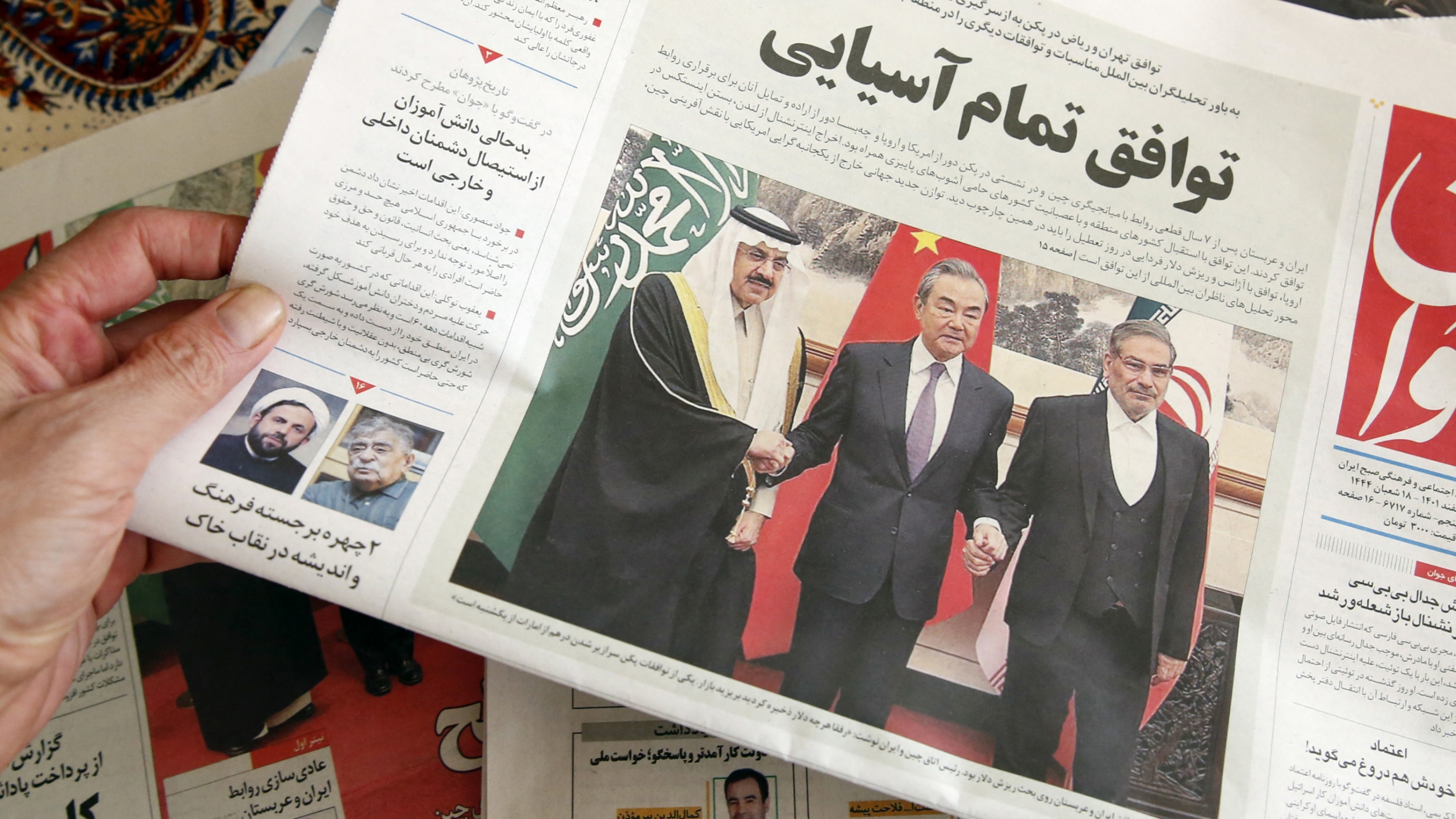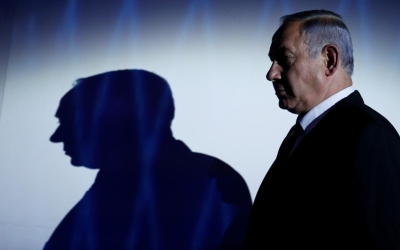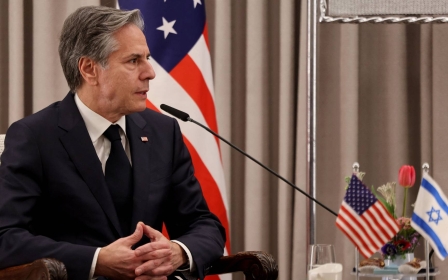Israeli press review: Political blame-game over Saudi-Iranian agreement

Netanyahu's 'diplomatic neglect'
Saudi Arabia and Iran's rapprochement and decision to reopen embassies and resume diplomatic ties have prompted criticism of Prime Minister Benjamin Netanyahu from Israeli opposition figures.
The Chinese-sponsored talks announced on Friday would see Tehran and Riyadh re-establish diplomatic relations within two months.
The announcement was received with alarm in Tel Aviv.
'The restoration of relations between the Saudis and Iran is a serious and dangerous development for Israel'
- Naftali Bennett, former prime minister
After losing a general election, Netanyahu became an opposition leader in June 2021, but he returned as premier in December 2022.
“The restoration of relations between the Saudis and Iran is a serious and dangerous development for Israel that represents an Iranian diplomatic victory," former prime minister, Naftali Bennett said.
He described the talks between Tehran and Riyadh as "a critical blow to efforts to build a regional coalition against Iran".
Bennett blamed Netanyahu: "This is a resounding failure of the Netanyahu government and is the result of a combination of diplomatic neglect, general weakness and internal conflict in the country."
He referred to the ongoing protests against the government of Netanyahu's plan to reform the judiciary as a sign of an Israeli schism.
“Countries in the world and region see Israel divided with a non-functional government focused on serial self-destruction. And then those countries chose a side."
“The Netanyahu government is a resounding economic, diplomatic and security failure, and every day it goes on endangers the state of Israel. We are in need of a broad national emergency government that will work to undo the many damages that have been done."
Government blames US, Bennett and Lapid
But if you ask Netanyahu's government officials, they would disagree with Bennett, blaming him, Yair Lapid and US weakness for the Iranian-Saudi thawing of ties, according to Ynet.
Bennett and Lapid formed a coalition government in June 2021 before the coalition collapsed a year later when it could not renew an emergency law extension that granted illegal settlers in the occupied West Bank civilian rights.
On 29 December, Netanyahu formed a government of settler leaders from the West Bank, far-right factions and ultra-orthodox parties.
“There was a feeling of American and Israeli weakness, so Saudi Arabia turned to other channels,” a senior Israeli official told reporters while present in Italy with Netanyahu.
The Israeli official blamed Bennett and Lapid, saying that Saudi and Iranian talks started during their coalition term in power.
However, Riyadh and Tehran first talked in April 2021 while Netanyahu was the prime minister.
“The ones that accuse us should ask themselves how this happened on their watch, and how things advanced so far on their watch. Western and Israeli weakness leads to increased recognition of Iran. Israeli and American power can keep this from happening,” the official added.
The official said the recent development would not affect Netanyahu's effort to reach a normalisation deal with Saudi Arabia.
“What happens on the diplomatic level is not what happens under the surface,” the official said.
Redrawing of regional map
Ties between Saudi Arabia and Iran were cut in 2016 after authorities executed a Saudi Shia cleric; protestors stormed the Saudi embassy in Tehran and set it on fire.
Zvi Bar'el, an Israeli analyst at Haaretz, wrote that "Israel's dream of forming an Arab alliance against Iran was shattered on Friday with the news that Iran and Saudi Arabia have agreed to restore diplomatic ties within two months."
'China is taking the United States' place as an economic and strategic power in the region. A power that Israel has little influence over'
- Zvi Bar'el, Israeli analyst
He added, "the dramatic announcement is likely to redraw the regional map of friends and foes, and will have global reverberations", and it would also give Iran "much-needed legitimacy in the Arab world".
"[It] could lead to further deals with Arab states like Egypt, pave the way to end the war in Yemen, offer a workable solution to the crisis in Lebanon, and even lead to a resumption of negotiations to save the nuclear deal," he wrote.
Bar'el wrote that "China is taking the United States' place as an economic and strategic power in the region. A power that Israel has little influence over."
Yuli Edelstein, a Knesset member from the Likud party, criticised Netanyahu, saying, "The world does not stop while we are focused on power struggles and head-butting, especially not the worst of our enemies."
“The time has come to sit and speak and solve the arguments between us in order to reunite against the existential threat against us,” he said, calling the Saudi-Iranian agreement "very bad for Israel and the entire free world”.
Yair Lapid, the opposition leader, described it as “a collapse of our regional defensive walls that we had been building against Iran”.
“This is what happens when you are focused on the judicial madness instead of doing the work against Iran and strengthening ties with US,” Lapid tweeted.
*Israeli press review is a digest of news reports not independently verified as accurate by Middle East Eye.
Middle East Eye propose une couverture et une analyse indépendantes et incomparables du Moyen-Orient, de l’Afrique du Nord et d’autres régions du monde. Pour en savoir plus sur la reprise de ce contenu et les frais qui s’appliquent, veuillez remplir ce formulaire [en anglais]. Pour en savoir plus sur MEE, cliquez ici [en anglais].





